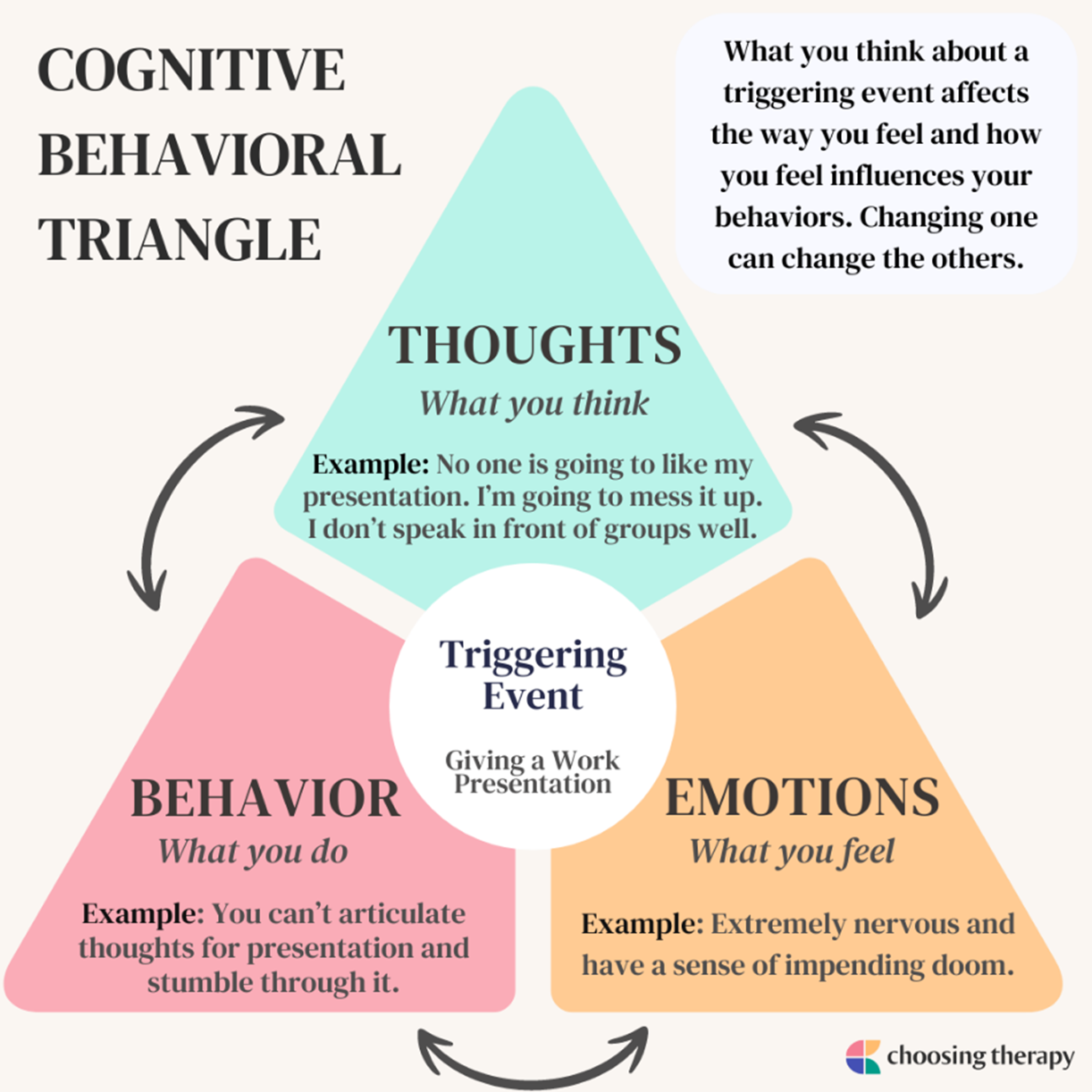5.5 Cognitive Theories of Motivation
Questions to consider:
- How do thoughts impact motivation?
- Is it possible to accomplish something you don’t believe you can?

Cognitive theories of motivation focus on how an individual’s thoughts, beliefs, and expectations influence their motivation to engage in certain behaviors. These theories suggest that people are actively involved in the process of setting goals, evaluating their progress, and making decisions about their behavior based on their internal cognitive processes.
Individuals are motivated to engage in activities based on their expectations of success and the value they place on the outcomes of those activities. This theory suggests that people are more likely to engage in behaviors that they believe will lead to desirable outcomes, and that they will be more motivated to engage in those behaviors if they believe they have a high chance of success.

A person’s belief in their ability to successfully perform specific tasks or achieve specific goals is known as self-efficacy. It is a concept introduced by psychologist Albert Bandura, who described it as an individual’s belief in their capacity to execute behaviors necessary to produce specific performance attainments. Self-efficacy is not a measure of skills or knowledge but rather a person’s confidence in their ability to use those skills or knowledge to achieve a desired outcome. A person with high self-efficacy tends to be more persistent and confident in the face of obstacles, while a person with low self-efficacy may be more likely to give up or avoid challenging tasks. Self-efficacy can be developed through experiences of mastery, modeling, social persuasion, and reducing negative emotional states.
If a person frequently believes that they can’t do something and feel a complete lack of control in mastering a task, he or she can develop learned helplessness. This attitude is like depression, a pervasive feeling of apathy, and a belief that effort makes no difference and does not lead to success.
Overall, cognitive theories of motivation emphasize the importance of internal factors, such as beliefs, expectations, and perceptions, in shaping and driving human behavior.

Case scenario
Meet Miguel, a 21-year-old first-generation college student who is pursuing an associate degree in computer science. Miguel is highly motivated to succeed in his studies and is driven by a strong sense of his ability to succeed (self-efficacy).
This is a key factor in his motivation and academic success. He has a strong sense of confidence in his own abilities and feels empowered to take on new challenges and achieve his goals.
To build and maintain his self-efficacy, Miguel engages in several strategies to enhance his learning experience. He sets realistic and achievable goals for himself and creates a plan to achieve them. He breaks down complex tasks into smaller, more manageable steps, which helps him to feel more in control of his academic workload.
As Miguel continues to learn and grow in his program, his beliefs continue to fuel his motivation and academic success. He finds satisfaction and fulfillment in his coursework, and his dedication to his studies pays off in his academic performance and long-term career goals. Miguel is proud of himself for pursuing his education and is confident in his ability to achieve his dreams and make a positive impact in the world.
Quick Quiz 5.5
- How can a person develop learned helplessness?
- How do thoughts impact behavior and motivation?
Licenses and Attribution
CC Licensed Content
- College Success by Amy Baldwin is licensed CC BY. Access for free.
References
- Arduini-Van Hoose, Nicole. Behaviorism and Motivation. Hudson Valley Community College, https://courses.lumenlearning.com/edpsy/chapter/behaviorism-and-motivation/. CC BY-NC-SA.
- Borich, Gary D., and Martin L. Tombari. Educational Psychology. CC BY.
- Bohlin. Educational Psychology. CC BY.
- Chiquo. Maslow’s Hierarchy of Needs. Wikimedia Commons, https://upload.wikimedia.org/wikipedia/commons/8/88/Maslow%27s_Hierarchy_of_Needs.jpg. CC BY-SA.
- —. Deficiency-Growth Theory: Maslow’s Hierarchy of Needs. Hudson Valley Community College, https://courses.lumenlearning.com/edpsy/chapter/deficiency-growth-theory/. CC BY-NC-SA.
- Duckworth, Angela L., et al. “Grit: Perseverance and Passion for Long-Term Goals.” Journal of Personality and Social Psychology, vol. 92, no. 6, June 2007, pp. 1087–1101. https://doi.org/10.1037/0022-3514.92.6.1087.
- Dweck, Carol S., and Ellen L. Leggett. “A Social-Cognitive Approach to Motivation and Personality.” Psychological Review, vol. 95, no. 2, 1988, pp. 256–273.
- —. Educational Psychology. OER Commons, https://www.oercommons.org/courses/edpsych/view.
- —. Expectancy-Value Theory. Hudson Valley Community College, https://courses.lumenlearning.com/edpsy/chapter/expectancy-value-theory/. CC BY-NC-SA.
- “Learning to Learn.” OER Commons, https://www.oercommons.org/courseware/lesson/73880/overview?section=5.
- Lucas, Laura, Heather Syrett, and Edgar Granillo. Personal Learning Preferences. Austin Community College. CC BY-NC-SA 4.0.
- “Metacognition (Flavell).” Learning Theories, https://www.learning-theories.com/metacognition-flavell.html.
- “Multiple Intelligences.” Educational Psychology, https://courses.lumenlearning.com/educationalpsychology/chapter/multiple-intelligences/. CC BY.
- —. Self-Determination Theory. Hudson Valley Community College. CC BY-NC-SA.
- —. Self-Efficacy Theory. Hudson Valley Community College, https://courses.lumenlearning.com/edpsy/chapter/self-efficacy-theory/. CC BY-NC-SA.
- —. Social Cognitive Learning Theory. Hudson Valley Community College.
- Spielman, Rose M., William J. Jenkins, and Marilyn D. Lovett. Psychology 2e. OpenStax, https://openstax.org/books/psychology-2e. CC BY.
- Stoltz, Paul G. GRIT: The New Science of What It Takes to Persevere, Flourish, Succeed. ClimbStrong Press, 2014.
- —. Theories of Motivation. Hudson Valley Community College. CC BY-NC-SA.
- Thompson, Penny. Foundations of Educational Technology. CC BY-NC 4.0, except where otherwise noted.
Images or Graphic Elements
- Images used by permission from Alamo Colleges District Department of Communications.

